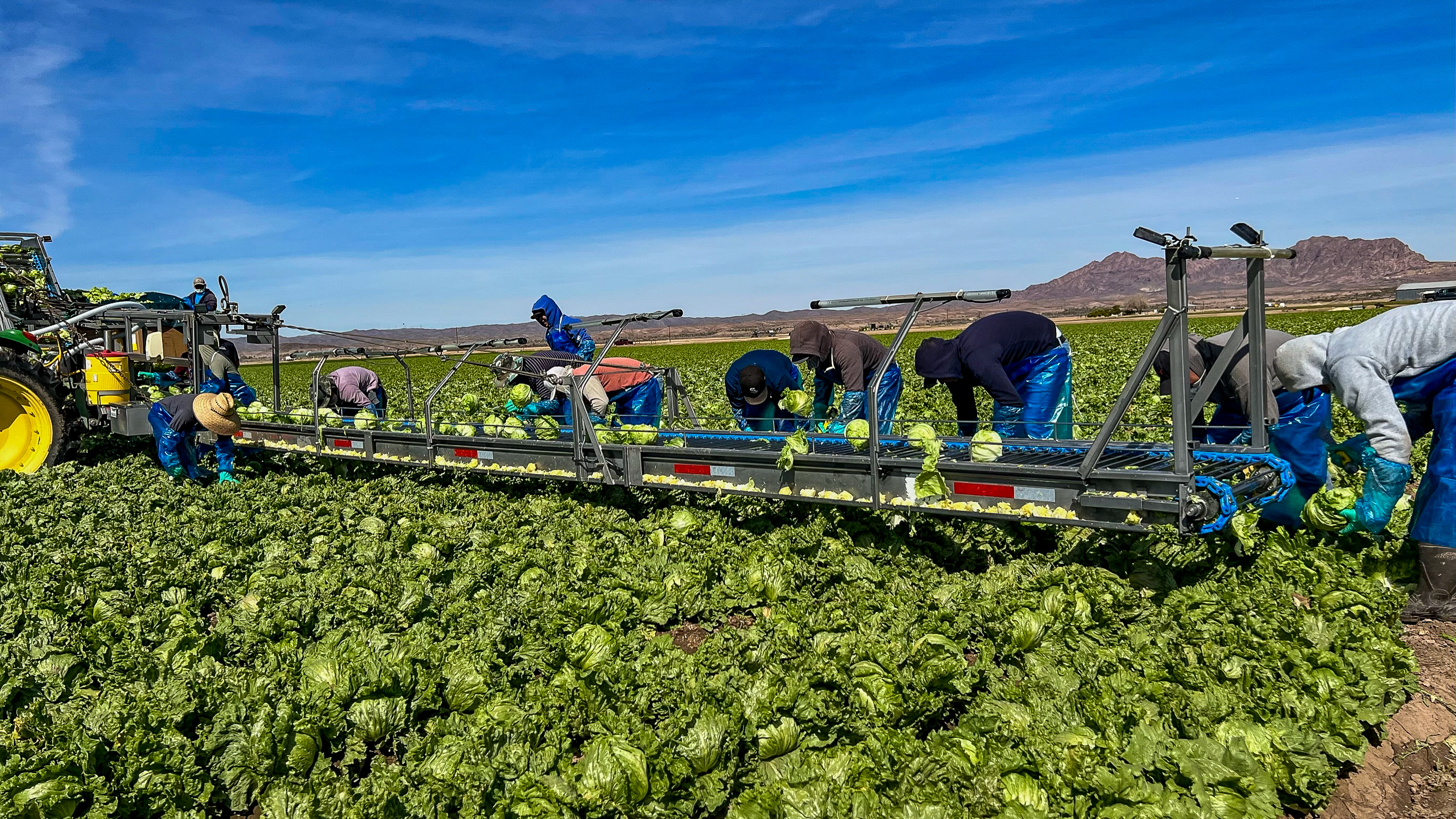
E-Verify

Issue Overview
E-Verify is a federal, online system to determine authorization to work in the U.S. Unfortunately, while E-Verify may not adversely affect some parts of the U.S. economy, it could have dire impacts on agriculture due to the lack of U.S. workers and the absence of a workable visa program. Requiring agricultural employers to use E-Verify without assuring that a workable guest worker program is in place could have a significant, negative impact on U.S. farm production, not only threatening the livelihoods of many farmers and ranchers in labor-intensive agriculture but jeopardizing as well the health of the rural economy, where agriculture plays an important role.
Enforcement-only immigration reform would cripple agriculture production in America.
AFBF Policy
Farm Bureau believes any federal mandates on employers to implement E-Verify must:
- Be based on an employment eligibility verification system that is simple, conclusive, and timely;
- Provide an affirmative defense for employers acting in good faith;
- Allow status adjustment for workers not authorized prior to implementation; and
- Be preceded by full implementation of a usable agricultural worker program.
Farm Bureau opposes any mandate on employers to use E-Verify until an acceptable agriculture worker program is in place that provides for future flow of guest workers and allows work authorization for workers not currently authorized.
Background
The Immigration and Reform and Control Act of 1986 (IRCA) made it unlawful for employers to hire or employ individuals not authorized to work in the United States. Since that time, employers have been required to use the Immigration and Naturalization Service (INS) Form I-9, which is completed by job applicants who submit the form to employers with specified documents that testify to their identity and work authorization. IRCA, however, prohibits employers from questioning the documents offered by applicants, and any employer who questions the documents offered by job applicants or refuses to hire based on reasonable-appearing documents can be sued, not only by the job applicant, but also by the Department of Justice. The Department of Agriculture website explicitly advises farmers that “Employers must accept any of the documents or combination of documents listed on the back of the INS Form I-9 to establish identity and employment eligibility.”
As a result of these policies instituted decades ago, use of fraudulent documents by workers has become prevalent, in agriculture and elsewhere. There have been bills introduced in the past that would mandate that employers use E-Verify and phase in the requirement over several years. For many agricultural producers, the requirement would begin in three years; for others, the requirement could start sooner. Most importantly, the legislation contains no worker program for agriculture – either in remedying problems with the H-2A program or in instituting any additional program to assist agricultural employers. If the mandatory E-Verify program goes forward by itself, without providing producers a source of legal workers, it would present a potentially insurmountable challenge for many agricultural employers.
Border Security
Farm Bureau believes we must secure the border of the United States by the most technologically advanced means possible and with minimal impact on farmers and ranchers. This includes increased presence and cooperation of all branches of law enforcement and increased penalties for illegal entry and drug and human trafficking into the U.S.
Farm Bureau also believes the most critical component of border security is to fix the immigration system – including creating legal ways for agricultural workers to enter the country to fill jobs. Our government should focus on preventing those with real criminal intent from entering our country, rather than wasting time and resources locking up farm workers. As long as there is demand in the U.S. for farm workers, hard-working people will continue to enter the U.S. to earn a living for themselves and their families back home. Creating a legal way for them to do so, and a way to know who they are and what they’re doing while they are here, makes us more secure.
WHAT WE'RE SAYING

Farm Groups Praise Stay on Farm Labor Rule
Dec 3, 2024
READ MORE

H-2A Program Benefits Guest Workers, Alabama Farms
Mar 12, 2024
READ MORE

House Ag Committee Offers Solutions to Farm Labor Crisis
Mar 7, 2024
READ MORE

New York Farm Bureau Utilizes Virtual Reality to Highlight Agricultural Labor
Feb 20, 2024
READ MORE
Top Issues
VIEW ALL